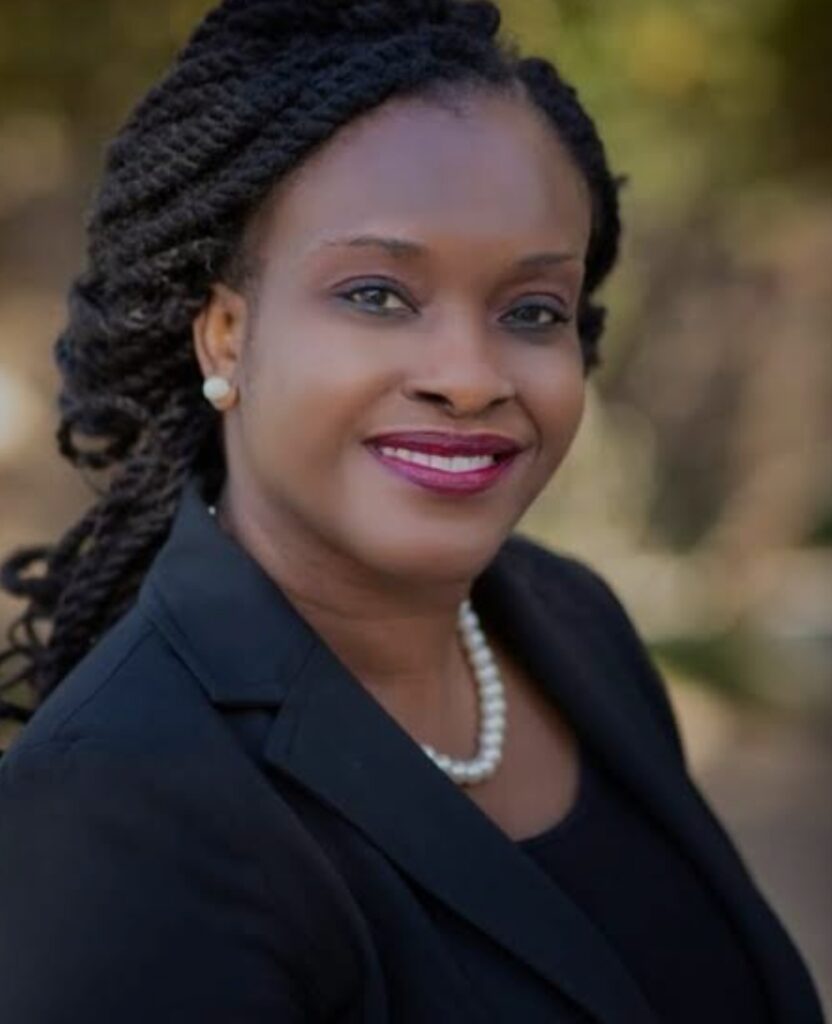
Rose-Margaret Ekeng-Itua, a Nigerian engineering professor, has become the world’s first black woman to acquire a Doctor of Philosophy (PhD) in cybernetics. Ekeng-Itua received her degree from the University of Reading in the United Kingdom, where she studied under her first PhD supervisor, Prof. Kevin Warwick, and became the world’s first human cyborg.
Rose-Margaret Ekeng-Itua is an engineering professor at Ohlone College in Fremont, California, where she has worked for six years. She takes satisfaction in her ability to oversee the Engineering and Engineering Technology Departments while both teaching and mentoring students.
She is also the programme leader for the College’s Smart Manufacturing Technology Programme. In January, the programme worked with Tesla to enhance the electric automaker’s Employee Education Assistance (EEA) programme. The programme aims to upskill Tesla employees in smart manufacturing. The College’s Smart Manufacturing Technology Programme partnered with Tesla to upskill its employees. More about Rose-Margaret Ekeng-Itua.
Rose-Margaret Ekeng-Itua is from Cross River, Nigeria. She acquired her passion for engineering and technology while growing up in Nigeria. She enjoyed learning about how things worked and how they could be improved. Despite the fact that the culture did not encourage women to pursue higher education, particularly in male-dominated fields like engineering, she persisted.
She first obtained a Bachelor of Engineering degree in Electrical and Electronic Engineering (Telecommunications) from the Federal University of Technology, Owerri (FUTO). She then pursued a Master of Science (MSc) in Mobile and Satellite Communications Engineering at the University of Surrey in England.
She earned a Certificate in Disruptive Strategies from Harvard before graduating with a PhD in Cybernetics from the University of Reading.
The respected Doctor’s journey to this point has not been simple, as she has encountered various hurdles as a woman of colour in a male-dominated sector. Gender biases and a dearth of publicly available role models were two of the difficulties she encountered. Despite this, she refused to let the obstacles define her.
In a recent interview, Rose-Margaret Ekeng-Itua stated, “Every challenge became fuel for my determination.” I recognised that my accomplishment would not only provide opportunities for myself, but would also serve as an example for other women and girls who might otherwise doubt their talents.” Rose-Margaret Ekeng-Itua, a FUTO alumnus, became the first black woman to acquire a PhD in cybernetics.
Today, she is regarded as a pioneer educator, administrator, and engineer who has championed leadership roles in Science, Technology, Engineering, and Mathematics (STEM) difficulties in Africa and paved the way for African youth, particularly women.
She is also a multi-award-winning engineering professor with over 20 years of experience teaching engineering and STEM in the United States, Europe, and Africa. She has spearheaded the development of new STEM initiatives, and her interest in technology began as a child in Nigeria.

